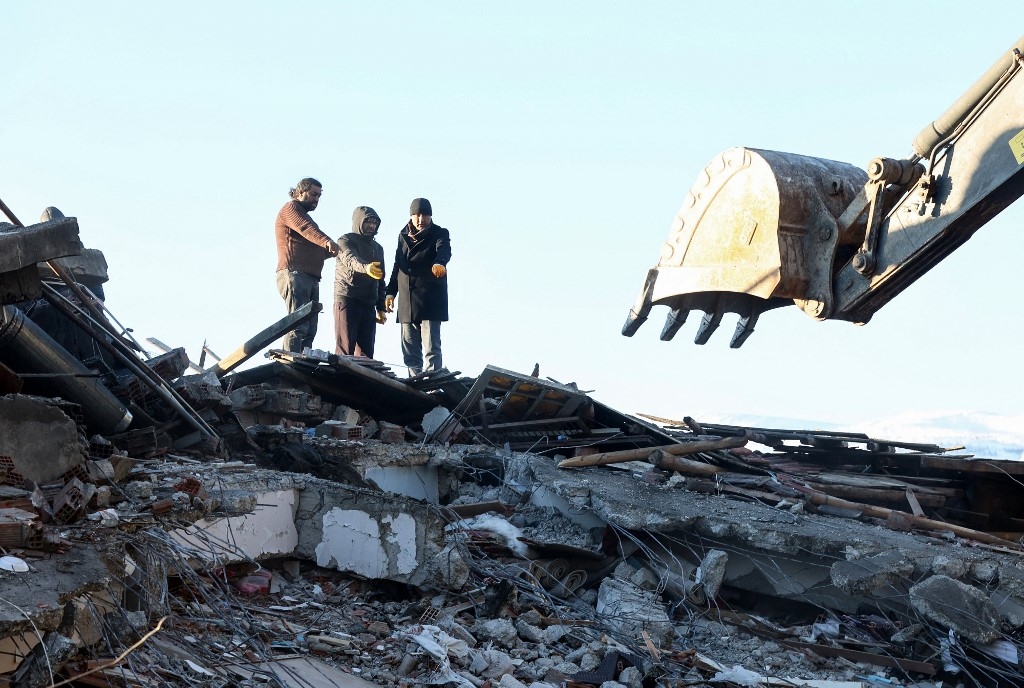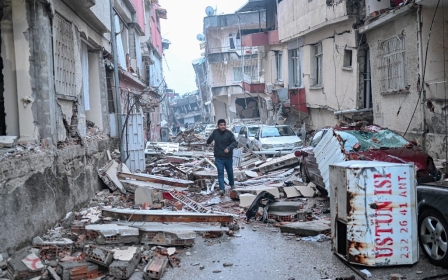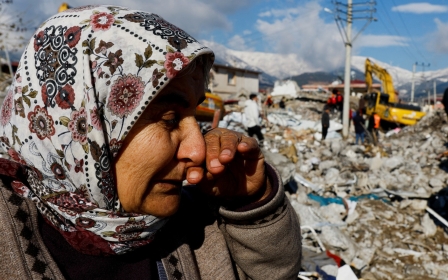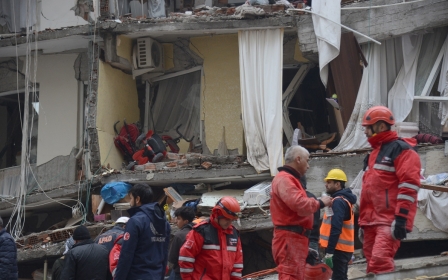Turkish cement stocks surge in last two days, stoking public anger

Turkey’s Borsa Istanbul stock exchange has been in a free fall since Monday morning, following devastating earthquakes that hit southern Turkey. The benchmark stock index BIST 100 was down seven percent on Tuesday, but there was one exception: cement companies.
“May Allah curse you,” said the Yeni Cag daily on Tuesday in a headline. “The cement stocks reached the ceiling today as well. When did this society become this bad?”
At least nine cement companies' stocks have surged in the last two days, with at least five going up by nearly 21 percent, including Konya Cimento; Oyak Cimento; Afyon Cimento; Nigbas; and Cimbeton.
Yeni Cag blamed investors, saying they were being opportunistic while people were fighting for survival, trapped under rubble in 10 cities. Investors expect a large reconstruction effort in the coming months and are buying up shares that could be related to that effort.
Turkish President Tayyip Erdogan on Tuesday declared a state of emergency in 10 provinces devastated by two earthquakes that have so far killed more than 7,200 people and left a trail of destruction across a wide area of southern Turkey and neighbouring Syria.
New MEE newsletter: Jerusalem Dispatch
Sign up to get the latest insights and analysis on Israel-Palestine, alongside Turkey Unpacked and other MEE newsletters
Monday's magnitude 7.8 quake, followed hours later by a second one that was almost as powerful, toppled thousands of buildings including hospitals, schools and apartment blocks.
Tens of thousands have been injured or left homeless in cities in Turkey and northern Syria. The overall number of people affected by the earthquakes in Turkey and Syria could be 23 million or higher, according to preliminary assessments by the World Health Organisation (WHO).
Turkish economist Cem Seymen said that the stock markets should have been closed after the earthquake.
“Cement stocks are once again the ceiling, humanity is once again the floor,” Turhan Bozkurt, another economist lamented.
The construction sector in Turkey is one of the largest sources of employment. But it is also controversial due to Erdogan’s prioritising of infrastructure and housing investments for the past two decades. In the past, the opposition has blamed Erdogan for establishing an economy based on cement, alleging that the government was making its cronies richer.
“It is the economy based on construction, cement, and concrete that is causing this destruction. The society continues as it is,” Turkish architect Omer Yilmaz said, referring to the soaring cement stocks. “It has to change. It will.”
A trader with 35-years of experience, speaking anonymously to Middle East Eye, said the authorities should have closed the stock exchange for a while to protect the investors and stop opportunistic trading.
“However, if you keep it open, there is nothing wrong with investing in winning stock to preserve your savings,” the trader said. “You have to keep the markets on and running to hedge your risks. This is totally rational.”
The trader added that there was nothing speculative in the cement stocks since they were likely to increase their sales and profits in the upcoming months.
“There is a saying in the markets, buy the rumor and sell the news,” he added. “It might look immoral, but this is the reality.”
Middle East Eye delivers independent and unrivalled coverage and analysis of the Middle East, North Africa and beyond. To learn more about republishing this content and the associated fees, please fill out this form. More about MEE can be found here.




